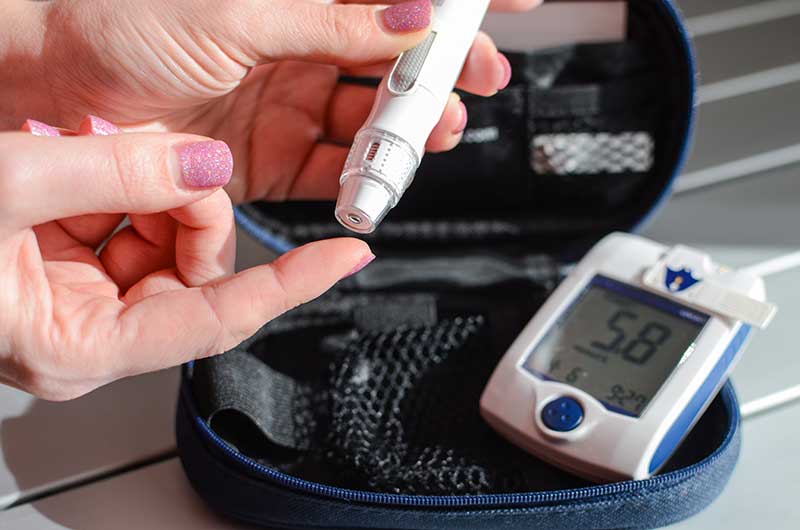Diabetes is a chronic disease that affects millions of people around the globe. It occurs when the body has difficulty modulating blood sugar levels, resulting in hyperglycemia or hypoglycemia. Diabetes management can be a daily challenge, but with the appropriate strategies and lifestyle modifications, you can live a healthy and fulfilling life. In this blog, we will discuss some vital health tips for those coping with diabetes.
Consult Your Medical Staff
Consultation with a healthcare provider is the first and most vital stage in managing diabetes. Your healthcare team, which may consist of a physician, nurse, dietitian, and diabetes educator, can provide you with individualized recommendations for managing your condition. They can assist you in developing an individualized diabetes management plan that includes medication, diet, and exercise recommendations.
Check Blood Sugar Levels
Understanding how your body responds to various foods, activities, and medications requires regular monitoring of your blood sugar levels. Keeping track of your readings can assist you and your healthcare team in adjusting your treatment as needed. Depending on your physician’s instructions, you may be required to monitor your blood sugar multiple times per day.
Eat a Well-Rounded Diet
A balanced diet is essential for diabetes management. Concentrate on foods with a low glycemic index (GI), as they are less likely to cause blood sugar increases. Vegetables, whole grains, lean proteins, and healthful fats should be abundant in your diet. Sugary and highly processed foods can cause blood sugar fluctuations, so avoid them.
Portion Management
Portion control is crucial for managing caloric intake and blood sugar levels. Utilize measuring cups, a food scale, or visual cues to determine portion sizes. Consuming smaller, more frequent meals throughout the day can also aid in maintaining stable blood sugar levels.
Routine Exercise
Physical activity is essential to the management of diabetes. Regular exercise can enhance insulin sensitivity, reduce blood glucose levels, and promote overall health. Aim for at least 150 minutes per week of aerobic activity of moderate intensity, such as vigorous walking, swimming, or cycling. Additionally, resistance training can help increase muscle mass and insulin sensitivity.
Medication Compliance
If your doctor has prescribed medication to manage your diabetes, it is imperative that you take the medication as prescribed. Not taking your medication as prescribed or skipping doses can result in uncontrolled blood sugar levels. Discuss your concerns regarding your medications with your healthcare team.
Stress Administration
Stress can significantly affect blood glucose levels. Find effective methods of stress management, such as mindfulness meditation, deep breathing exercises, yoga, and time spent in nature. Prioritizing relaxation can help you keep your diabetes under control.
Routine Check-Ups
Regular checkups with your healthcare team are necessary for monitoring your diabetes and preventing potential complications. These examinations may include glucose testing, blood pressure monitoring, cholesterol checks, and eye and foot exams.
Keep informed
Educate yourself about diabetes by perusing credible sources, attending diabetes education classes, and remaining abreast of the most recent research and treatments. The more you know, the better equipped you will be to effectively manage your condition.
Seek Assistance
Living with diabetes can be physically and emotionally challenging. Seek support from friends, family, or support groups where you can share your experiences and learn from others going through similar difficulties.
The conclusion
Diabetes management is a lifelong journey requiring commitment, but it is wholly possible to live a healthy and fulfilling life with diabetes. By adhering to these guidelines and collaborating closely with your healthcare team, you can gain control over your diabetes and reduce your risk of complications. Remember that everyone’s diabetes journey is different, so be patient with yourself and make adjustments as needed. Your health and wellbeing are deserving of your efforts.



